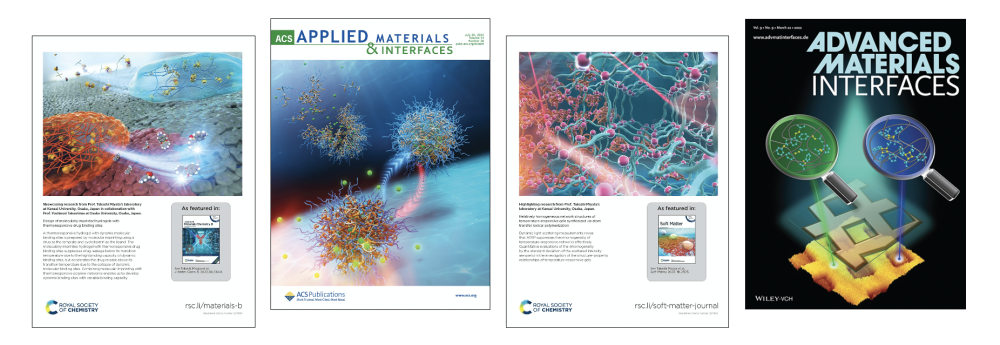Like living organisms and biomolecules, polymers that respond to external stimuli such as heat or light and significantly change their properties are called “smart polymers. The Laboratory of Advanced Polymer Chemistry aims to design the world’s first bio-inspired materials that will revolutionize science and technology worldwide, focusing on smart polymers that recognize and respond to specific molecules related to medicine and the environment, rather than physicochemical stimuli such as light and heat.
World’s first! Preparation of smart gels that recognize target molecules and swell/shrink
We have succeeded in synthesizing the world’s first molecular-responsive gels that swell and shrink in response to target molecules, proteins, and DNA. Using these molecular-responsive gels, we are researching drug delivery systems (DDS) and materials for the detection and separation of environmental hormones.
Contributing to next-generation medicine and environmental issues! Development of bionanotechnology using smart polymers
We are preparing nano to micro-sized smart gels, micelles, and capsules by using polymer synthesis techniques such as emulsion polymerization, controlled polymerization, and surface graft polymerization. These are expected to be applied to DDS and highly sensitive biosensors.
Novel Biomaterials! Medical Applications of Smart Liquid Crystalline Polymers
We have succeeded in synthesizing novel liquid crystalline polymers that undergo a liquid crystalline-isotropic phase transition near body temperature. Using this liquid crystalline polymer, we have fabricated polymeric micelles and separation membranes that can be used in DDS and diagnostic systems, and are developing biomaterials using liquid crystalline polymers, which are unique in the world.
Contribution to regenerative medicine! Cell Regulation by Smart Polymers that Change Sol-Gel Phase Transition, Shape, and Solidity by External Stimulation
We have succeeded in synthesizing smart polymers that change shape and solidity in response to light and biomolecules, and smart polymers that undergo a phase transition from sol to gel. By culturing cells on these smart polymers, cell adhesion, differentiation, and cycle can be controlled, which is expected to be applied to regenerative medicine.
